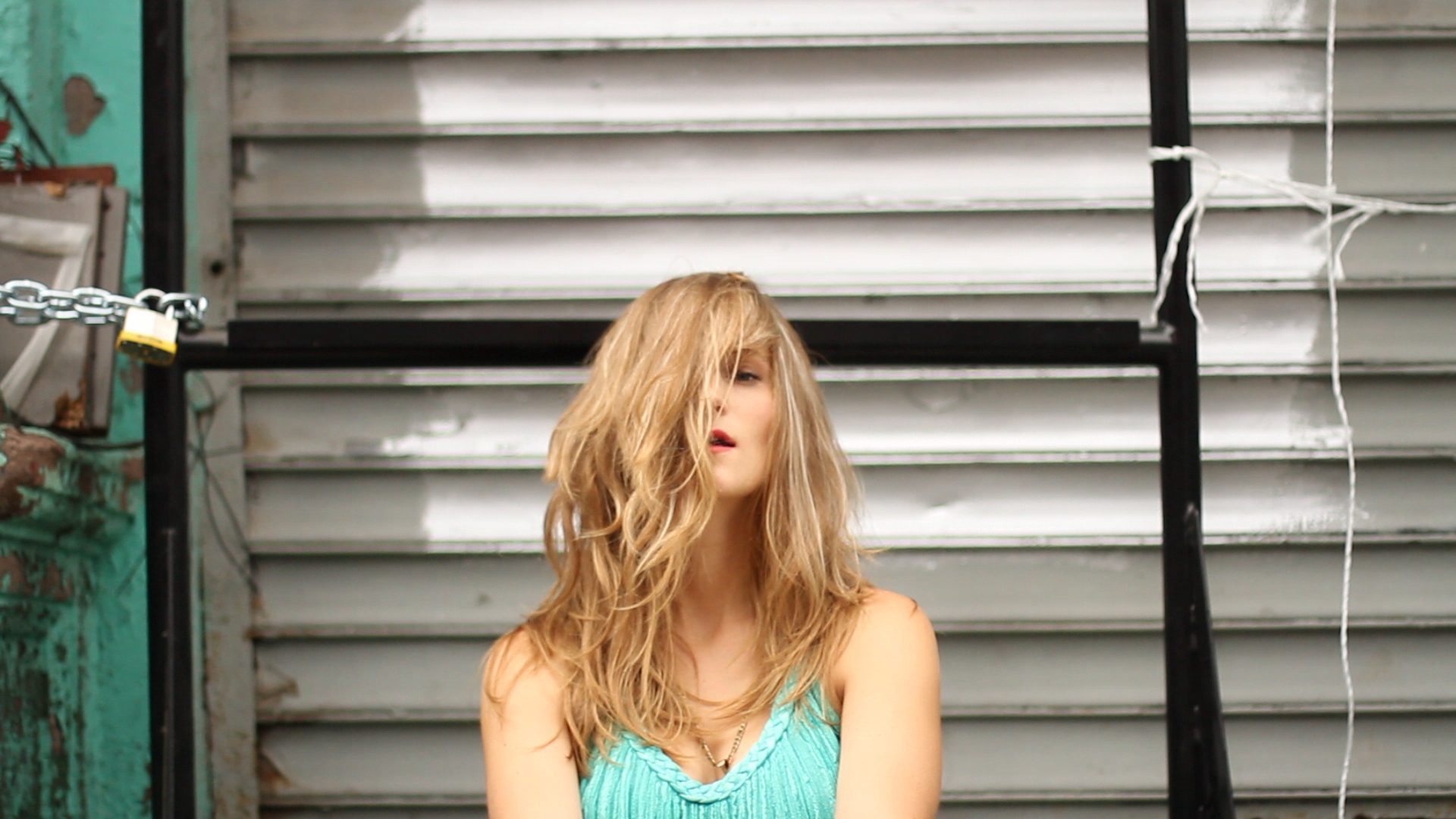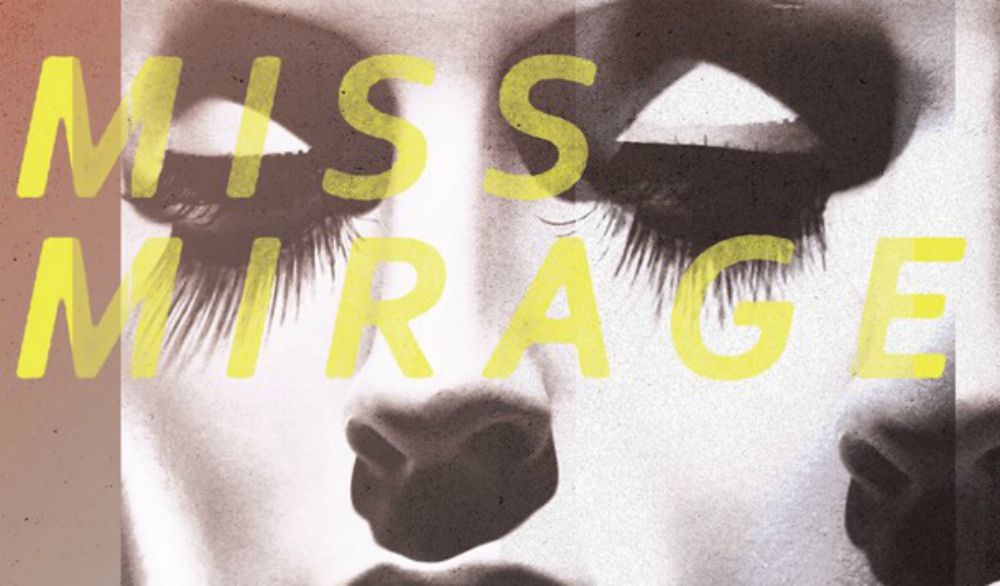

Manchester, England-based singer/songwriter/guitarist Jane Weaver considers her latest LP Flock a departure from her previous 11 albums, not only because she delved into exploring personal and political issues beyond the abstract concepts that typically inspire her songs, but also because she drew from influences as diverse as 1980s Russian aerobic records, recent UK political events, and the Medieval French town where she wrote the album’s lyrics.
“Normally, I do more conceptual albums about other people and films and stuff like that,” she says. “So for this record, I just wanted to sort of hone down and make it about nothing in particular, but just concentrate on a group of pop songs that were all different. It was like a smorgasbord of pop songs; that was kind of the intention of the record.”
With poetic lyrics and airy vocals, the 10 tracks span the dreamy, synthy “Stages of Phases,” the upbeat, danceable “Sunset Dreams,” and the chill, funky “Pyramid Schemes.” The first track, “Heartlow,” documents her journey to a town in Brittany, France where she goes every year only to realize almost everything was closed — not because of COVID, as this happened before the pandemic, but because she went there off-season. Against guitars and drums that give off a psychedelic rock vibe, the lyrics capture the feeling of loneliness in the town, which can be applied all over the world right now: “I thought the bells would be ringing/when I walked home/I thought that people would be singing/where did they go?”
On another single off the album, the glam-rock-inspired “The Revolution Of Super Visions,” she sings about Brexit and the toxic masculinity celebrated in world leaders, repeating, “You look good/you look good/do you look at yourself and find nothing?” She was initially taken aback by the contrast between the lyrics’ cutting critique and the fun, happy-go-lucky melody, but decided to lean into it. “When I wrote that, I was thinking to myself, this is an odd song — and then I thought, I can’t sing that; it just sounds too cheesy. Whatever I’m saying, it sounds too wrong,” she says. “But then I was just kind of inspired by that idea that it doesn’t really matter — you’ve just got to let the song go.”
Indeed, each song on the album – released March 5th via Fire Records – has a life of its own. Beneath the title track’s haunting layered vocals, for instance, are several medieval-sounding instruments inspired by her surroundings in the French town she visited, where she wrote the album. She lived in a building made of medieval-looking stones and walked through forests full of Arthurian folklore, inspiring her to buy a medieval wood instrument called a bombard and play it “quite madly,” as well as a string instrument called a marxophone, which did not exist in medieval times but gave off a sound reminiscent of a medieval wheel instrument called the hurdy-gurdy.
“I was exploring sort of an enchanted forest, and I was hearing all these flutes and these bombards and all these weird sounds,” she remembers. There were also lots of birds in the trees, which inspired the song and album’s title.
Another unexpected influence behind the album: a YouTube rabbit hole Weaver fell down involving 1980s Russian aerobic songs — that is, music written specifically to soundtrack aerobic exercises. Much of this was really electronic music disguised as exercise tapes in order to evade Soviet censorship.
Weaver first wrote the lyrics for the album in December 2019, using this process as a form of therapy. “Over the time I was writing it, I wasn’t in a particularly good place,” she says. “So I was trying to write myself out of it. I felt miserable and had all these happy pop songs in my head. It was very strange as well, wanting to convey a positive pop message and that kind of unification you only get when you’re on stage and you play one of your singles or popular songs and everybody’s got their hands in the air.”
She began recording the music in the studio in March 2020, then had to take a break because of the pandemic. This allowed her to revisit the songs and revise the lyrics and melodies until she was truly happy with them.
For the recordings, she played her usual guitar and moog synthesizer, but used them more in a “pop way,” rather than a space or kosmische album, as she’s previously explored. “It is still kosmische — it’s cosmic pop; that’s what I feel it is — but I think my main aim with the record was to just have 10 songs which were each pop songs in their own way,” she says. “It wasn’t like I was doing deliberately 10 funk songs or 10 guitar pop songs. I was just going to let each song be what it was going to be, whether it was uncool or whatever.”
Weaver has had a long and acclaimed musical career; she played in Britpop group Kill Laura in the ’90s, and folktronica project Misty Dixon in the early 2000s, releasing her first solo album Like An Aspen Leaf while in the latter band in 2002. In addition to making her own music, she runs a record label, Bird Records, an offshoot of Twisted Nerve Records focused on female folk artists.
Her desire to support female artists stems in part from experiencing firsthand what they’re up against in the industry. “The entertainment industry and all that happened with the #metoo movement, it’s still ongoing,” she says. “So much gaslighting and abuse can go on because of the people in charge, and it’s heartbreaking to see and feel it and to know it goes on.”
With all the problems the world is currently facing, it’s an odd time to release an album, but also a potentially fruitful one. “I feel crass putting a record out now because it seems so wrong,” she says. “But I’ve decided to go ahead with it because I want this record to bring joy to people in a unifying way.”
Follow Jane Weaver on Facebook for ongoing updates.




